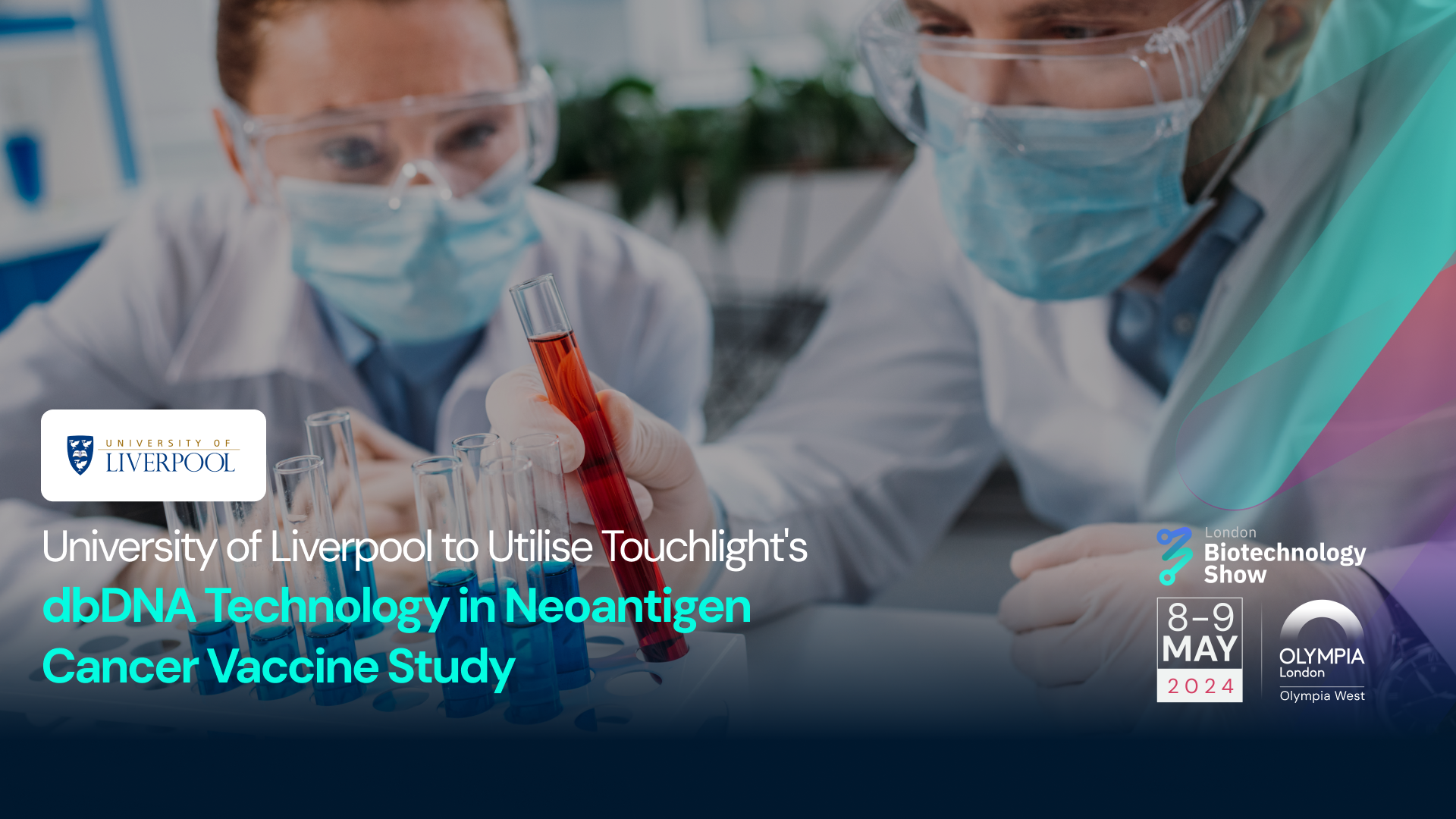Hampton UK, 3 April 2024: Touchlight, a leading Contract Development and Manufacturing Organisation (CDMO) pioneering genetic medicine advancements through its innovative enzymatic doggybone DNA (dbDNA) technology, has announced a groundbreaking partnership with the University of Liverpool, UK. This collaboration aims to leverage dbDNA for the development of a fully personalised therapeutic neoantigen DNA vaccine tailored for patients battling non-small cell lung cancer (NSCLC) at Clatterbridge Cancer Centre, Liverpool. NSCLC, a prevalent form of lung cancer affecting nearly 50,000 individuals annually, ranks as the third most common cancer in the UK and worldwide, with an estimated 2.2 million new cases reported in 2020 alone.
Under this collaboration, researchers at the University of Liverpool will embark on a clinical trial to craft individualised cancer vaccines for each patient. This innovative approach seeks to activate the patient's immune system by targeting mutations specific to their cancer, providing a novel avenue of treatment for those who have not experienced adequate benefits from standard immunotherapy. Touchlight's dbDNA technology is essential in this effort, providing a minimal, linear, double-stranded DNA vector through an enzymatic manufacturing process. This technology offers the capability to produce high-purity Good Manufacturing Practice (GMP) DNA efficiently, making it well-suited for the rapid development of personalised vaccines for cancer patients.
In a press release published by Touchlight, Prof Christian Ottensmeier, chief investigator and shared lead of the project said, “We are delighted to work with Touchlight on developing this trial. The dbDNA approach offers a way to make vaccines very quickly, including for personalised treatments. We are very excited that we will be able to offer this clinical trial to patients with advanced lung cancer in Liverpool and expect that patients can be included starting in the second half of 2024.”
Touchlight, headquartered in London, UK, specialises in providing DNA services and manufacturing enzymatically produced dbDNA to facilitate the advancement of genetic medicines. Their innovative platform supports the development and production of various advanced therapies, including mRNA, viral and non-viral gene therapy, and DNA APIs. With its unique enzymatic production process, dbDNA enables unparalleled speed, scalability, and precision in gene targeting, offering clients comprehensive support from pre-clinical stages through development, supply, and licensing for in-house use.


